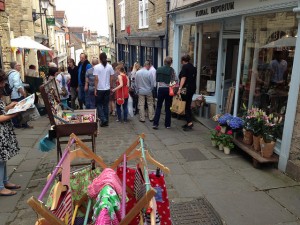One of the things I love about being an academician of the Academy of Urbanism (AoU) is how it makes you stop, think and challenge long held opinions of how places work. Each year as an assessor of the Academy’s Great Awards, I get to visit three places in one award category and meet some of the people who are helping to shape the place. And each year the three places in any category appear to have nothing in common whatsoever. Long live individualism. Yet each year, as assessors reflect on what we’ve seen and heard, common themes and threads emerge and the process of visits, reports and awards generates a huge amount of learning for everyone involved.
This year I was struck by the emphasis on communities and their role in driving change. Nothing radical about community involvement but what is striking is how much the role of communities is evolving. That got me thinking about the relationship between communities and tourism.
There has been a huge growth in community involvement across a raft of services where previously communities were passive consumers and recipients of change, for example in health, planning, education, recreation, regeneration and civic design. Now communities help shape policy, are decision-makers and often initiators of change; identifying, delivering and sometimes funding projects. Align that change with the rapid growth in Community Interest Companies (CICs) and you begin to look at communities very differently.
Some town councils are reinventing local governance to become powerful forces for change. Frome, the winner of the AoU Great Towns Award 2015, is an example of how community-driven change can transform a place; attracting investment, new residents, businesses and visitors, and supporting culture and creativity. The magic formula appears to be an independent non-political Town Council with a focus on wellbeing, combined with the creative use of funding at a local level. Town and Parish Councils are able to access funding in ways that are not available to local authorities. In Frome, ideas and learning are more highly valued than visions and conventional models of success. That is refreshing and exciting.
The Town Council runs a suite of websites. Take a look at Discover Frome where you can find a town map and information about the independent shops and local markets and festivals. And, if you fall in love with the place, you can always pick up a relocation pack during your visit. After all, Frome is in The Times Top 30 most fashionable places to live.
Frome is outstanding in its achievements but there are other similar examples across the country and more will emerge, taking advantage of the growing infrastructure designed to encourage local decision-making and local ownership of place. Of course, tourism is not the driver for localism but is an important part of it. Some towns are already well-recognised destinations and others want to attract visitors because of the contribution they make to the vibrancy of a town and its economic sustainability. Looking at it from a tourism perspective, the authentic and personalised experiences that visitors want are delivered at a local level.
Destination Management Organisations (DMOs) have always sought to work locally, though sometimes it can be difficult when resources are stretched thinly over a large territory. But it is worth looking at grassroots working with a fresh eye. DMOs are searching for new ways of delivering change. Strong empowered communities may offer new delivery vehicles for all sorts of tourism projects and bring to the table creative and different ideas about how to make things happen. Some of this grassroots work is already happening and we can all call to mind examples of good practice, but there is potential to do more.
